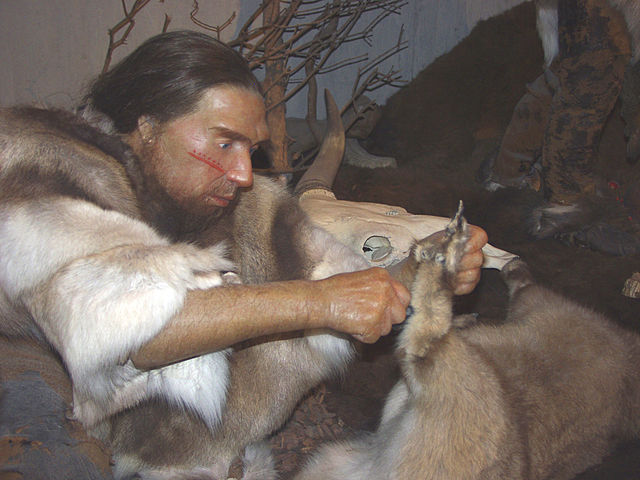This article is more than 1 year old
Last living NEANDERTHALS discovered in JERSEY – boffins
Cavemen probably went extinct after the Channel Islands
Archaeologists have rediscovered the lost home of the last Neanderthals on the south coast of Jersey, which shows evidence of the last cavemen to live in Northwest Europe.

A team investigating an existing site at La Cotte de St Brelade cave on the southeastern coast of the island stumbled across geological deposits from the last Ice Age, thought to have been lost to excavation a hundred years ago.
"In terms of the volume of sediment, archaeological richness and depth of time, there is nothing else like it known in the British Isles. Given that we thought these deposits had been removed entirely by previous researchers, finding that so much still remains is as exciting as discovering a new site," said Dr Matt Pope of the Institute of Archaeology at University College London, who helped lead the research.
The site has produced more Neanderthal stone tools than the rest of the British Isles put together and holds the only known late caveman remains in Northwest Europe. When the archaeologists dated the sediments, they found that part of them are from between 100,000 and 47,000 years old, indicating that Neanderthal teeth found there in 1910 were younger than previously thought.
"We were sure from the outset that the deposits held some archaeological potential, but these dates indicate we have uncovered something exceptional," explained Pope. "We have a sequence of deposits which span the last 120,000 years still preserved at the site. Crucially, this covers the period in which Neanderthal populations apparently went 'extinct'."
This was the period during which Neanderthals were kicked off the evolutionary ladder to be replaced by our own species, Homo sapiens.
"Working with our partners to bring these rediscovered sediments under new analysis will allow us to bring the lives of the last Neanderthal groups to live in North West Europe into clearer focus," Pope said.
"We may be able to use this evidence to better understand when Neanderthal populations disappeared form the region and whether they ever shared the landscape with the species which ultimately replaced them, us."
The team was funded by the Natural Environment Research Council and published the full study, "Late Neanderthal occupation in North-West Europe: rediscovery, investigation and dating of a last glacial sediment sequence at the site of La Cotte de Saint Brelade, Jersey", in the Journal of Quaternary Science. ®
